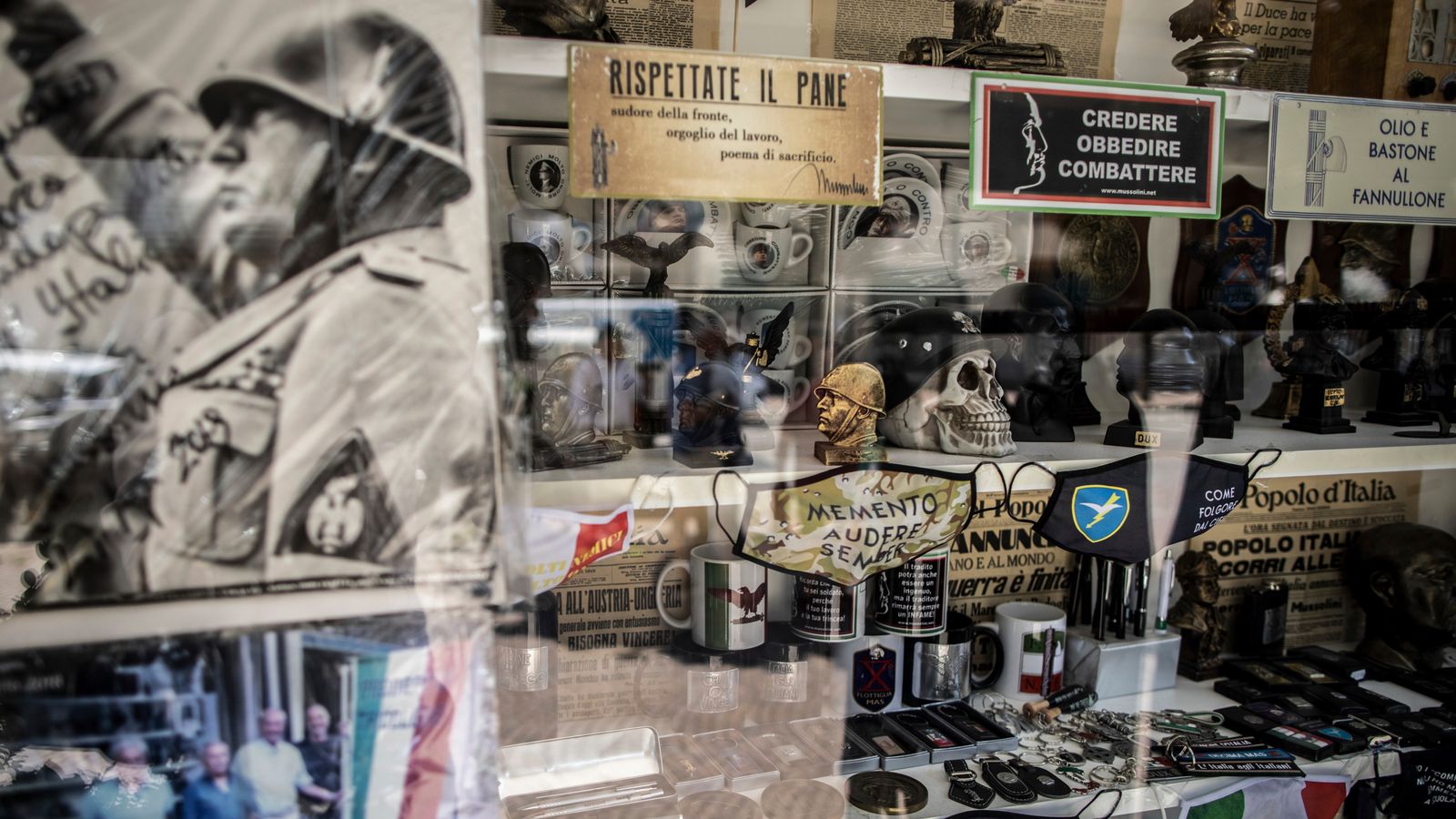With speed and precision, Maria-Teresa cuts and stitches for the people of her town.
For the past 50 years, she has been the local seamstress running her shop in the heart of Predappio, in northern Italy.
It is, she tells me, hard work “and I earn little”, and now she worries that nobody will follow her lead, that the Italian economy is sluggish and about to get worse.
“We need to help young people by helping them to learn jobs.”
The country needs change, she says, and this weekend, it will get it. The general election is likely to usher in a new era, with Giorgia Meloni crowned as the country’s first woman prime minister.
“Maybe Meloni will be the right person,” says Maria-Teresa, her eyes lighting up.
“At least she’s a woman and she’s going to govern us. Let’s see – but I would like something to change.
How likely is a nuclear attack on the UK? Could Putin be removed from power? Your questions answered
Shaun Pinner: Briton released in Russia-Ukraine prisoner swap pictured with his family as all five captives return to UK
Ukraine war latest: Russian foreign minister speaks at UN – with Putin ‘deeply in trouble’ after nuclear ‘bluff’
“Why can’t a woman measure up to others? I’ve been doing this kind of job for 50 years, with so much strength.”
The town where Mussolini was born
Predappio is not a big town, but it is famous – infamous – as the place where Benito Mussolini was born, and where his remains now lie.
The souvenir shop next to Maria-Teresa’s place will sell you a T-shirt, mug, plate or beer mug decorated with a fascist slogan. Down the road, you can buy a swastika.
It is almost exactly 100 years since Mussolini (whose busts can be bought in both shops, in a variety of sizes) led the March on Rome, which saw him come to power. He has long since been reviled by most of the world, but there are still some who have a sense of nostalgia for the days when Italy was a global power.
Read more:
Why the fall of Mario Draghi will be a concern for many Western leaders
In her youth, Meloni praised Mussolini as a strong leader. In the decades that have passed, her views have eased and she now condemns him, and fascism.
But there are still some who are uneasy about her links to political extremism. Her party, the Fratelli d’Italia, still uses a flaming torch logo inherited from fascists at the end of the Second World War. Her populist rhetoric appeals to those nostalgic for the past.
Riding high on a wave of discontent
The truth is that Meloni is no fascist. She is a politician who is riding high on a wave of discontent with the Italian political establishment – the outsider now smashing down the door to government.
In the street, we meet Silvia Casadei, out walking her dogs. “Changes always happen and they can be both positive and negative. I don’t know if Meloni is going to win but she has a chance. I hope so.”
Her first task will be to confront the spiralling cost of living and shortages of energy. But she has also been outspoken in her disdain for illegal immigration. Her coalition government will include Matteo Salvini, leader of the Lega Nord party, who has long claimed that immigration weakens Italy.
‘I want justice’
A couple of hours away, we meet Charity Oriachi, originally from Nigeria but now a resident in Italy. This summer, her husband, Alika Ogorchukwu, was murdered in the most brutal way, strangled in the street while passers-by watched on.
She tells me that their apartment now is too quiet, without her husband’s music and singing. “It’s horrible, terrible. How could you film this?” she asks. “I want to go to court and what I want is justice.”
A man is in custody, accused of the murder, but the apparent indifference of observers has, once again, raised the question of Italy’s attitude towards migrants.
Charity says she will stay in Italy, not least because of the support she has received from members of the Nigerian community near her.
‘We need change’
But Salvini says migrants “use up hospital beds” while, when I spoke to her, Meloni linked migrants to “selling drugs, criminality or prostitution”. In polling, Italians tend to both condemn migration and also to widely overestimate the number of migrants in their country.
Migration will play a part in this election, but not a pivotal one.
“Everything is more expensive now,” one woman told us, sitting on a step in Predappio’s main square. “We need change.”
That is what Meloni is counting on – the desire for change; the appeal of the political outsider.








